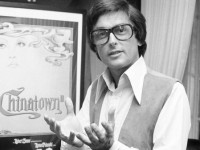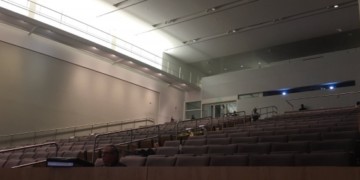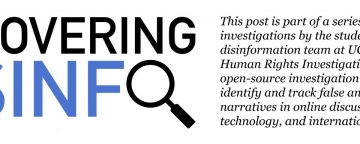
I firmly believe that in difficult times such as these, it is vitally important to seek inspiration. Otherwise, it is far too easy to succumb to nihilism and the paralysis that it invites. We owe it to ourselves and to those we love to keep hope alive, nurturing it with creative expressions of our dreams and aspirations for the future. When I consider the future I want to see, my thoughts invariably land on the subject of space exploration and its boundless quest for human discovery.
As a Gen Xer, the Space Shuttle has occupied a unique place in my imagination. I followed its missions, awestruck, as a child in the 1980s. I remember where I was when the Challenger exploded, watching with disbelieving heartbreak in my elementary school classroom as it disintegrated and spun apart thousands of feet above the earth. Even after that tragedy, I remained hopeful that the Space Shuttle program would continue to pave the way for future space exploration. As I entered my college years and matured into a young adult, I still felt exhilarated every time I saw the Space Shuttle launch on NASA TV.
Hand-me-down prosperity: the Gen X experience
You see, that inspiration wasn’t easy for my generation to come by. Whereas the Baby Boomers reveled in the Apollo missions, which were borne out of JFK’s bold challenge to compete with Soviet Russia, the national mood in which my peers and I grew up could not have been more different. I was born into the malaise of the 1970s, raised in an economically depressed rural New England community that was still reeling from widespread factory closings. Latchkey kids like myself were called upon to become adults before our time as the divorce epidemic peaked. Although President Reagan genially proclaimed that it was morning in America, our first doomed dance with trickle-down economics made it clear that his promise was intended only for a privileged few.
For some time now, I’ve been trying to find a way to describe how very different our Gen X experience was from that of our parents, the Boomers. The best summary I have found so far is this: “While Baby Boomers whined about the long lines for gas in the mid-1970s, Gen Xers watched from the back seat wondering what the future held. Just like the malls, shopping centers and office buildings they would come to work in and the videos they would rent, everything appeared secondhand and pre-viewed.” For that reason, examples of inspiration like the Space Shuttle meant very much to me — and, I would argue, to many of my fellow Gen Xers. The Space Shuttle was something that belonged to us.
However, if I’m being honest, even the Space Shuttle represented a scaling back of American ambition. As my generation came of age, we were no longer catapulting humans deeper into the great beyond but sending up re-usable spacecraft to a fixed location just outside our planet in order to conserve federal budgetary resources. And since the Space Shuttle has made its last flight, we’ve had nothing of its kind (from NASA, at least) on which to focus our collective imagination.
American innovation goes into retirement
Although there is innovation and entrepreneurship today, it is concentrated in private enterprise and noticeably absent when it comes to the public good. Elon Musk’s SpaceX program is exciting and I’ve greatly enjoyed writing about what his Hyperloop could mean for the future of remote work. However, this wealthy capitalist clearly has no taste for unsexy, unglamorous tasks like revitalizing New York city’s subways. The problem is that our public servants also have no zeal for undertaking such projects even though it is in fact their job. As I write this, my home state of New York has seen fit to throw three billion dollars of our taxpayer money at Amazon, a trillion dollar company that neither needs nor deserves this obscene corporate welfare.
I saw a post fly by on social media not long ago claiming that oligarchies stifle innovation, presumably because innovation is not advantageous to oligarchs. Analysts have already determined that the United States is now no longer a true democracy but an oligarchy, so perhaps there is some causality there. It certainly looks that way when we think of innovation as something that is explicitly designed to serve the public. After all, Jeff Bezos is scoring an exclusive helipad while the 7 train remains in an outrageously decrepit state. When asked about the prospects for our subways last week, Governor Cuomo punted to Mayor de Blasio, who had nothing to say on the topic whatsoever. He instead discussed his pet project, the ferries, which are primarily patronized by well-to-do people and receive a massive public subsidy.
The tragic decline and exit of Boomer leadership
When it comes to innovation in service of the public, our leadership has clearly failed us. We are witnessing the tragic final arc of Boomer governance in the form of the Trump administration, led by a Boomer and supported overwhelmingly by Boomers in a stunning act of selfishness at the expense of all the younger generations — Millennials and Generation Z most of all. We are being subjected to a second incarnation of the Greed is Good era, this time even more craven. Our head of state is literally profiting from his position and his followers are cheering it on. He makes periodic proclamations about a Space Force, but that proposed initiative is decidedly focused on defense rather than exploration.
Though they grew up in an era of unbridled optimism and rapid social change, Boomer politicians appear to have stopped believing that we Americans are deserving of better futures. Many of them want to drag us all back to the 1950s, a deeply unequal period my generation never knew and doesn’t consent to travel to. Others call themselves progressives with a straight face and throw billions of taxpayer dollars at the richest man in human history. In the meantime, the Boomers’ children are pioneers in one sole regard — we are experiencing the first decline in living standards that an American generation has ever suffered. A dearth of vision trapped us here, but a rebirth of vision can get us out.
Reconnecting with American innovation: meeting the Space Shuttle

Seeking to reconnect with our American entrepreneurial spirit, I visited the Space Shuttle exhibit at the Intrepid Museum with my mother earlier this month. When we went, it was just two days before the midterm elections. I had been wanting to meet the Space Shuttle for many years, ever since I saw its final flight onto the deck of the Intrepid. I don’t think I anticipated just how much the encounter would affect me, though.
While admiring the Enterprise‘s sheer size and its beautiful design, I began telling my Boomer mother how important the Shuttle was to me growing up. I became profoundly moved at the sight of this gorgeous vehicle that had been designed to ferry humans into space. It is proof that we can still climb into the heavens and knock on the door of what lies outside our planet. To me, it represents the expansion of humanity further into the cosmos and the realization of our potential as a species.
As I started sharing these sentiments, I felt tears rushing to my eyes. “Are we ever going to be that country again?” I asked my mother. Ever the optimist, which is one of many reasons that I love her, Mom said, “Of course, peanut. We will.” I wished she could see our dark decline from my Gen X perspective and understand what it means to be inhabiting middle age, having witnessed a steady decay of the American dream throughout your lifetime and wondering if your country will ever make an ambitious commitment to the future like that once more.
Not so long ago, Americans believed we could achieve great progress. Now we are being told to settle for far less than we all deserve, both in terms of our individual destinies and the fate of our country as a whole. A scarcity mindset dominates conversations about what is possible in one of the richest countries the world has ever seen. It’s no accident that Trump’s favorite campaign song is “You Can’t Always Get What You Want.” As his administration and its allies redefine the American dream downward, the Space Shuttles are permanently grounded. Although NASA is quietly planning to send humans to Mars, that likely won’t happen for another 25 years — around the time I reach retirement age.
Generational transition and the rebirth of hope
The more I reflect on our current state of affairs, the more I am convinced of two things: (1) It is time for the Boomers to make a graceful and swift exit from their decades-long position of institutional dominance so that Gen Xers and Millennials can begin repairing the damage that they have wrought and create a fairer, more just, and more mutually prosperous society. (2) To envision a better world for ourselves and our descendants, the younger generations must cultivate hope and inspiration for all. For me and perhaps others, this undertaking begins within the self and then ripples outward. External sources of inspiration like the Space Shuttle can spark it to life.
There are indications that this transition is already underway. We have a newly minted first-year class of Representatives, many of them Millennials, about to join the US Congress. This cohort clearly believes in a vision of political leadership that answers to the people, and they are wasting no time in addressing climate change. As these young leaders advocate for a Green New Deal, echoing past ambitious investments for the public good, I am hopeful that we will further empower them by electing even more leaders who understand that we cannot wait to create our collective future. To paraphrase Tony Kushner’s masterpiece Angels in America, the great work begins now.
Boldly going from here into the future
As many Americans joke today, we are currently living in the worst timeline — i.e., a dystopia. And when we have an American executive branch engaging in actual Orwellian double-speak of the kind I’d previously only read about as a schoolkid, I’m hard pressed to disagree with that assertion. But a course correction toward utopia is possible, if we imagine it. We have to be willing to dream. This means making ourselves vulnerable by conceptualizing what an ideal world could look like and then setting out to make it a reality. In a deeply cynical age, this isn’t easy. But it is the only endeavor worth pursuing.
As Eleanor Tremeer writes in her excellent article, “Why We Need Utopian Fiction Now More Than Ever,” dystopian sci-fi hasn’t been able to prevent such troubling developments as the rise of the surveillance state. This is partly why I’m skeptical of people who fixate exclusively on dystopian sci-fi and claim that there is no hope for humanity. Fictional utopias, however, are a powerful force for progress. Star Trek is the first and most obvious example. The Space Shuttle I met was named Enterprise in direct homage to Gene Roddenberry’s visionary television series, which inspired not just everyday Americans but also NASA engineers to imagine what space exploration could look like. They first had to see the Enterprise on screen before they could make it a reality, and then they did.
Gen X and Millennials are about to take the reins of American leadership, so it is time for us to engage with the sources of inspiration that enable us to dream big. For me, the Space Shuttle and Star Trek: Discovery are examples of that blue sky (or expansive universe) thinking that help me envision what I want for myself, my community, my country, and the world. This type of dreaming represents a commitment to a future of boundless possibility rather than acquiescence to nihilistic paralysis. And it is this dreaming that will help us realize the utopia we seek — the utopia that remains possible if we dedicate ourselves anew to creating it. The great work begins now.
My writing explores the intersection between digital culture and creativity. Visit rosedefremery.com to view my latest blog posts and portfolio.




























Connect with us